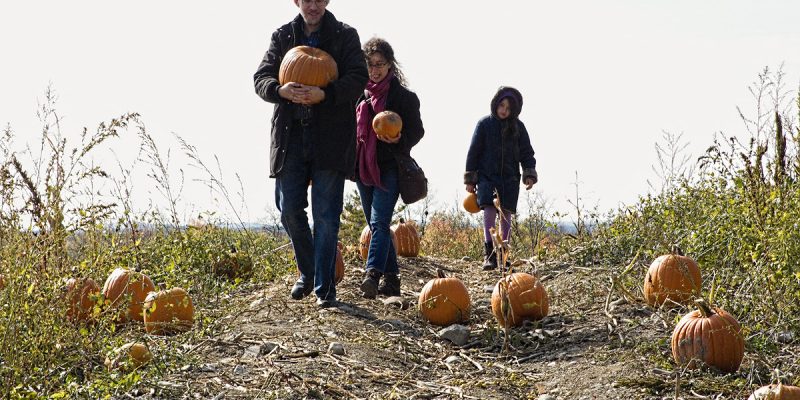
On the evening of November 10th , 2010, the meeting hall of the Gardiner Reformed Church was the scene of a lively conversation about one of Gardiner’s most precious assets: farms and farmland. About 60 people came to hear from speakers Bob Taylor of the Wallkill Valley Land Trust and David Haight of American Farmland Trust, and to share information and ideas about why we need our local farms and how we can support them.
The late Greg Finger, then Chair of Gardiner’s Open Space Commission (OSC, see related article “Volunteer of the Highest Order: Greg Finger,” page 2), introduced the speakers and moderated the discussion that followed. Speakers talked about the efforts of their organizations to protect farms and farming locally and across New York State, sharing their knowledge and experience in the process. Many of Gardiner’s farms, including Dressel’s, the Kiernan Farm, Half Moon, Tantillo’s, Four Winds and Wright’s, were represented and there was active participation by farmers and other community members in the discussion portion of the evening.
David Haight, head of the New York office of American Farmland Trust, who also farms with his wife in Clinton County, described how agriculture is a driver for rural economies like Gardiner’s—encouraging tourism, providing jobs, growing food and protecting our water. He explained how farmland generates a lower demand for public services. For every tax dollar paid to local government, farms require $.40 in services, while developed land requires $1.20 in services. As a result, development of farmland results in higher property taxes for all residents, while farmland preservation keeps everyone’s property taxes down. David made the point that this does not mean there should be no residential development in rural towns, but that it is important to maintain a balance between development and farmland preservation, which will contribute to lower taxes for all.
Also discussed was the fact that a growing interest in buying fresh, local food, often organic, is also driving purchases at local farms and farm markets. Farm markets are drawing people who care about what they eat, where it comes from and how it is produced. A number of farmers voiced their hope that members of Gardiner’s community would more frequently choose to buy their food at local farm stands rather than the supermarket. While locally grown food may be more expensive than the supermarket apple imported from China, there are hidden costs associated with food imported from thousands of miles away. As one farmer opined, “you get what you pay for.”
The OSC hopes to host more community meetings to encourage open discussion of the value of preserving open space and farmland for both current and future residents of Gardiner, and to explore available options that will ensure open space and farmland are not lost. As David Haight pointed out at the November 10th meeting, many communities south of Ulster County have lost that opportunity because “the concrete was their last crop.”
The Commission is hoping to move forward in the near future with another grant application to support a local farm, the Hess Farm on Sand Hill Road. The Commission has asked the Gardiner Town Board to indicate whether it would be willing to support such an application. The Town Board deferred that discussion to their meeting on January 11, while the OSC gathered additional information requested by the Board. If the Board gives this project a green light, the OSC is prepared to move forward quickly in order to meet the application deadline of March 1.
The OSC encourages community members who are in support of the Town’s efforts to preserve open space and farmland in Gardiner to make their views known to the Board by coming out to the Town Board meetings at which the OSC’s proposed projects will be discussed. If the OSC is allowed to move forward, its members are dedicated to pursuing their late chair Greg’s goal —to make certain that the Kiernan Farm will be the first successful farm preservation project in Gardiner, with more to come.
___________
